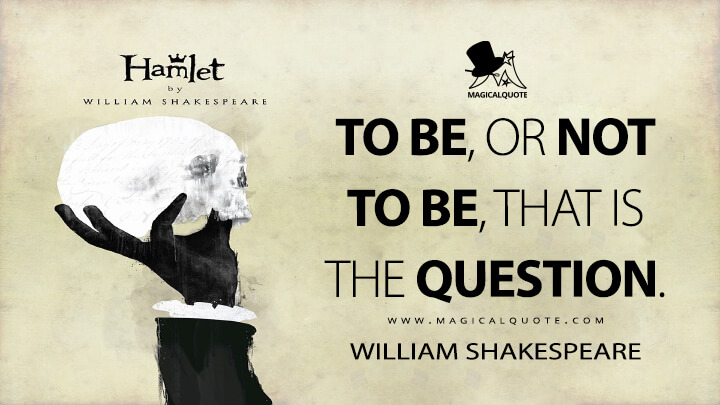Your basket is currently empty!
Teach Translate Travel Repeat
Teaching, translating and travelling around the world one day at a time!

The Most Important Word in the English Language and Its History
What is the most important word in the English language? How can we even begin to classify words in terms of their importance? What does that even mean? To answer this question, we need to look at some history.
History and language
For anyone who has studied a little bit of British history, you know that the UK is a melting pot; many different cultures and languages come together thousands of years in the making. Just take a quick look at the past 2000 years. We have the first successful Roman conquest beginning in 43AD. Next came the fall of Roman Britain and then the Saxons/Picts/Celts and the Saxon/Angle/Jute invasions in the 4th and 5th centuries. Viking raids and settlements were next and short periods of Danish rule from the 8th to 11th centuries happened. Finally, we have the Norman Conquest of 1066.
So England especially has been conquered and reconquered many times by the time the Normans arrive. What has all of this done for the languages that are spoken in Great Britain? The original inhabitants spoke Celtic languages, which is a branch of the Indo-European language family. The widest spoken example of a Brittonic language that is still spoken today is Welsh. The Romans who came spoke Latin. This Latin influence had been increasing even before the Romans conquered Britain due to trade with a very close neighbour, Gaul (modern-day France), and Julius Caesar’s attempted invasions 100 years prior. This is the reason why the Welsh word for bridge is pons (from the Latin pont) and the word for church is eglwys (ecclesia in Latin).
After the Romans
The Saxons, Angles and Jutes were Germanic tribes from Northern Germany and Denmark. They spoke what became ‘Old English’, a West Germanic language. This is why English is in the Germanic branch of the family and has similarities with other Germanic languages. They eventually pushed the native inhabitants (the Britons) into Cornwall and Wales, giving Old English dominance in England.
The Vikings both reintroduced and reinforced the Germanic nature of Old English through their own language, Old Norse. The language did not have as much influence on English as its Germanic roots or Norman French in 1066. Regardless Old Norse left behind many place names (places that end with ‘-by’, ‘-thorpe’, ‘-ton/’ston’), last names (especially ones that end with ‘-son’) and stray words that have been adopted into the family (such as ‘berserk’).
In 1066, we have the most famous invasion: the Norman Conquest. The successful Normans (who became the aristocracy) used French and then Anglo-Norman (English heavily influenced by French) which eventually became Middle English. An explanation of what happened to language in general around this time features in my post about whether the word ‘you’ has a plural.
So English is influenced by Latin, French, Old German and Old Norse along with languages resembling Gaelic and Welsh. We can still see individual words that are still in use. How can we choose just one and call it “the most important word”? What one word encompasses this melting pot? There is a word. In fact, I have already used this word 15 times in its various forms. That word is: ‘to be’. (now 16 times!)

But why “to be”?
‘Be’ is the word with the most meanings in the English language. It also has the most inflected forms. Both of these facts make sense when you look at this tiny word’s huge history. The word actually comes from three separate verbs. The b-stem forms (be, being, been) come from the Old English word beon, which meant ‘to become’ or ‘to exist’. This also was an irregular verb with conjugations such as waes in the past tense, which is from where the German simple past conjugation stem (after the ‘s’/’r’ shift that came around at a later point in time, creating war, warst, waren etc) along with the English simple past conjugation (‘was’, ‘were’, etc). This past tense conjugation was actually another conglomeration from an even older verb, meaning ‘to remain/stay’. This word inherited a past tense flair and so became the past tense of beon.
After the Norman Invasion, this first conglomerate was influenced by the Latin words esse and sum (both variations on the meaning ‘to be’) and eventually by the 16th century, the a- and i-inflected forms (‘am’, ‘is’, etc) replaced the b-stem words for the present tense.
There’s a mystery
So we have seen how German and Latin/French influenced this verb, but what about Old Norse? Old Norse is the most likely explanation of where the form ‘are’ comes from, although no one is really quite sure. In Old Norse, the plural form was sindon, which became (over a long period of linguistic evolution) (e)aron in Northern England where they settled. Over time, this changed form developed (probably) into the word ‘are’ that we know and love today.
This tiny conglomerate of a word has many usages. They include:
- the factual ‘be’ (stating a fact, ‘so be it’)
- the quotative ‘be’ – So I was like, ‘you better have my money’. And he was like ‘ain’t nobody got time fo’ dat),
- nominal ‘be’ (as in ‘you are a has-been’).
Additionally, it has made the foray into the world of nouns, both as itself and combined with other words, such as the word ‘albeit’.
For more facts and resources about the English language, visit my page on Learning English.
Interested in seeing our social media? Follow us on Instagram for travel photos!